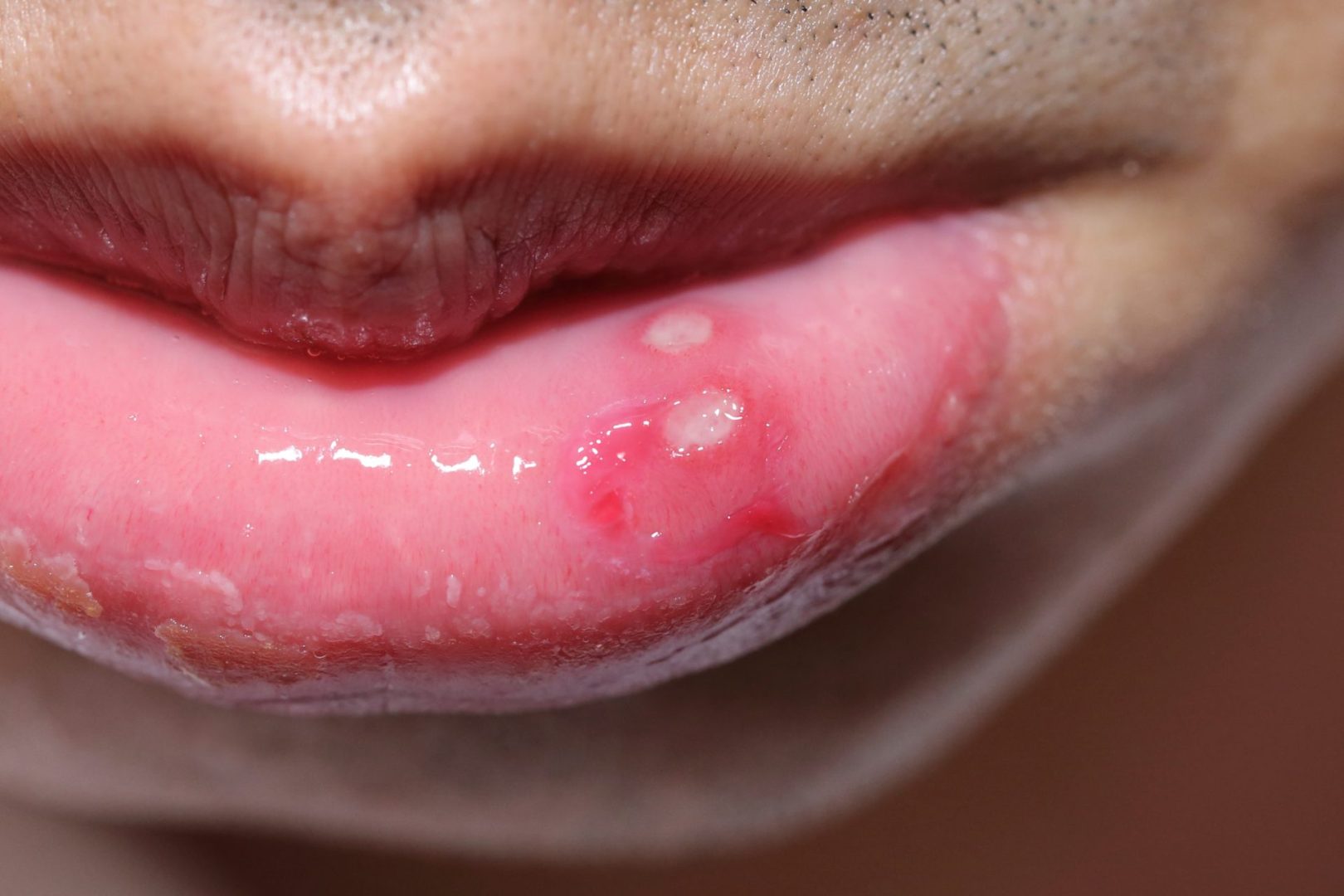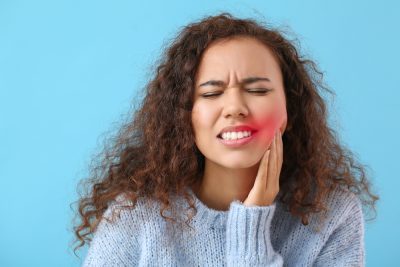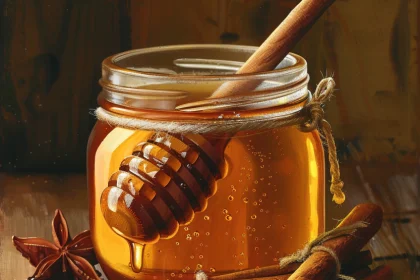Those tiny white spots inside your mouth might be small in size, but they deliver pain far beyond their dimensions. Canker sores affect nearly everyone at some point, making simple pleasures like enjoying a meal or even carrying on a conversation suddenly uncomfortable. These small but mighty sores can make eating, drinking, and even talking painful, but relief might be hiding in your pantry right now.
What creates these painful mouth ulcers
Canker sores, medically known as aphthous ulcers, appear as small, round or oval lesions with a white or yellowish center and a red border. They typically develop on the soft tissues inside the mouth, including the tongue, inside of the cheeks, and inside the lips.
Unlike cold sores, which appear on the outside of the mouth and are caused by a virus, canker sores are not contagious. Their exact cause remains somewhat mysterious, though several triggers have been identified through research and patient experiences.
Stress ranks among the most common culprits. During periods of heightened anxiety or emotional strain, many people notice an increase in canker sore outbreaks. The connection between mental state and oral health appears particularly strong with these painful lesions.
Minor injuries to the delicate mouth tissue frequently lead to canker sore development. Something as simple as accidentally biting your cheek, brushing too vigorously, or wearing dental appliances that rub against the mouth’s inner lining can trigger these ulcers.
Food sensitivities play a significant role for many sufferers. Acidic foods like citrus fruits, tomatoes, strawberries, and pineapple can both trigger new sores and aggravate existing ones. Certain food additives, particularly sodium lauryl sulfate, found in many toothpastes, have also been linked to increased outbreaks.
Nutritional deficiencies contribute to canker sore vulnerability as well. Low levels of vitamin B12, zinc, folate, or iron appear to increase both the frequency and severity of outbreaks. This explains why some people find their canker sores diminish when they address these specific nutritional gaps.
Hormonal fluctuations explain why some women experience more frequent canker sores during certain phases of their menstrual cycle. The shifting hormone levels appear to create conditions where these painful ulcers develop more readily.
Seven kitchen remedies that actually work
While canker sores generally heal on their own within one to two weeks, the pain they cause can make that waiting period feel eternal. Fortunately, several effective home remedies can accelerate healing and provide welcome relief from discomfort.
Salt water stands as perhaps the most accessible and effective treatment. This simple solution works by changing the pH in your mouth, creating an environment where healing can occur more rapidly while reducing harmful bacteria. Mix half a teaspoon of table salt into a cup of warm water, then swish it around your mouth for 30 seconds before spitting. The initial contact might sting briefly, but relief typically follows quickly.
Honey offers remarkable healing properties for canker sores. Its natural antibacterial qualities help fight infection while creating a protective coating over the sensitive area. For best results, apply a small amount of raw, unpasteurized honey directly to the sore several times daily. Unlike some remedies that get washed away immediately by saliva, honey adheres to the ulcer, providing longer-lasting relief.
Baking soda neutralizes the acids in your mouth that can irritate canker sores and slow healing. Create a simple paste by mixing a teaspoon of baking soda with just enough water to form a thick consistency. Apply this directly to the sore, hold for about 30 seconds, then rinse. Many people report an immediate reduction in pain following this treatment.
Aloe vera gel, renowned for its skin-healing properties, works similarly on the delicate tissues inside your mouth. The gel contains compounds that reduce inflammation while creating a protective barrier over the wounded area. Apply pure aloe vera gel (either from a fresh plant leaf or an alcohol-free commercial product) directly to the canker sore several times daily for best results.
Chamomile tea brings its anti-inflammatory and antiseptic properties to bear against painful canker sores. Beyond simply drinking the tea, which provides general health benefits, you can apply a cooled tea bag directly to the affected area for several minutes. The concentrated plant compounds help reduce pain and speed healing when applied consistently.
Apple cider vinegar, despite its intense taste, offers antibacterial properties that may help heal mouth ulcers. This remedy requires careful dilution—mix one teaspoon of apple cider vinegar with at least half a cup of water before swishing. The solution might cause temporary discomfort when it contacts the sore, but many users report faster healing after consistent use.
Hydrogen peroxide serves as a powerful ally against canker sores by killing bacteria and cleansing the affected area. Create a solution by mixing equal parts 3% hydrogen peroxide and water, then dab it directly onto the sore using a cotton swab. The characteristic foaming indicates the solution is working against bacteria. Always rinse with plain water afterward to remove any residual peroxide.
Identifying your personal canker sore triggers
While treating existing canker sores brings welcome relief, preventing them altogether represents the ideal solution. This requires becoming something of a detective regarding your own personal triggers.
Food journals prove remarkably effective for identifying dietary triggers. By tracking what you eat and when canker sores appear, patterns often emerge over time. Many people discover specific foods consistently precede their outbreaks—common culprits include nuts, chocolate, coffee, strawberries, eggs, cheese, and highly acidic foods like pineapple and oranges.
Oral care products merit close examination as potential triggers. Toothpastes containing sodium lauryl sulfate (SLS) irritate many people prone to canker sores. Switching to an SLS-free toothpaste leads to fewer outbreaks for many sufferers. Similarly, alcohol-based mouthwashes can dry and irritate delicate mouth tissues, creating conditions where canker sores develop more easily.
Stress management becomes essential for those whose outbreaks correlate with high-pressure periods. Regular exercise, adequate sleep, and relaxation techniques like deep breathing or meditation help some people reduce the frequency of stress-induced canker sores.
Certain vitamin supplements appear to help prevent recurrent canker sores in some individuals. B-complex vitamins, particularly B12, zinc, and lysine supplements have shown promise in reducing outbreak frequency and severity. However, consultation with a healthcare provider before beginning any supplementation regimen remains important.
Sharp-edged foods like chips, pretzels, and crusty bread can microscopically cut mouth tissue, creating entry points for canker sores to develop. For those particularly prone to these ulcers, choosing softer foods during vulnerable periods may reduce outbreak frequency.
Daily habits that prevent painful outbreaks
Beyond avoiding specific triggers, certain daily practices help reduce canker sore frequency and severity for many people.
Gentle brushing techniques protect delicate mouth tissues. Using a soft-bristled toothbrush and avoiding aggressive scrubbing motion, particularly around the inner cheeks and gum line, prevents the small injuries that often precede canker sores.
Hydration plays a surprisingly important role in prevention. A well-hydrated mouth produces more protective saliva, which helps maintain the proper pH balance and wash away irritants. Aim for at least eight glasses of water daily, especially during hot weather or when engaging in physical activity.
Careful chewing habits reduce the likelihood of accidentally biting your cheek or tongue—injuries that frequently lead to canker sores. Taking smaller bites and chewing more slowly, particularly when enjoying conversation during meals, helps prevent these accidental injuries.
Strategic meal planning can make a significant difference for those with known food triggers. Rather than completely eliminating favorite foods that occasionally trigger sores, some people find they can enjoy these items in moderation by spacing them out and consuming them alongside foods that don’t cause irritation.
Regular dental checkups allow for professional monitoring of any conditions that might contribute to canker sores. Dentists can identify issues like rough edges on teeth or fillings that might be creating friction against cheek tissue, as well as ill-fitting dental appliances that cause repeated irritation.
When home remedies aren’t enough
While most canker sores respond well to home treatment and resolve within two weeks, certain situations warrant professional medical attention.
Size serves as one important indicator—canker sores larger than a centimeter in diameter (about the size of a pencil eraser) may represent a more serious condition requiring medical evaluation. These larger ulcers, sometimes called major aphthous ulcers, typically take longer to heal and cause more intense pain.
Duration provides another crucial clue about when to seek help. Sores persisting beyond two weeks should be evaluated by a healthcare provider, as they may indicate an underlying health condition or require prescription-strength treatments.
Frequency of outbreaks sometimes points to systemic issues beyond simple canker sores. If you experience more than three or four outbreaks per year, especially if multiple sores appear simultaneously, consulting with a healthcare provider helps rule out conditions like inflammatory bowel disease, celiac disease, or Behçet’s disease.
Accompanying symptoms like fever, skin rash, genital sores, joint pain, or extreme fatigue alongside canker sores may indicate a more serious condition requiring prompt medical attention. These additional symptoms suggest the mouth sores might be part of a larger systemic issue rather than isolated lesions.
Severe pain that prevents eating or drinking requires intervention. While all canker sores cause some discomfort, pain severe enough to interfere with nutrition needs professional assessment. Prescription-strength topical medications or oral steroids can provide relief in these cases.
For those seeking professional treatment, several effective options exist beyond home remedies. Prescription mouth rinses containing steroids help reduce inflammation and pain. Topical pastes with active ingredients like amlexanox specifically formulated for canker sores create a protective barrier while delivering medication directly to the ulcer. In severe cases, oral medications including steroids or immune modulators may be prescribed.
While most people experience canker sores occasionally, knowing these effective home remedies provides welcome relief during these painful episodes. By identifying personal triggers and adopting preventive habits, many find they can reduce both the frequency and severity of outbreaks, making these common but uncomfortable mouth ulcers more manageable.














